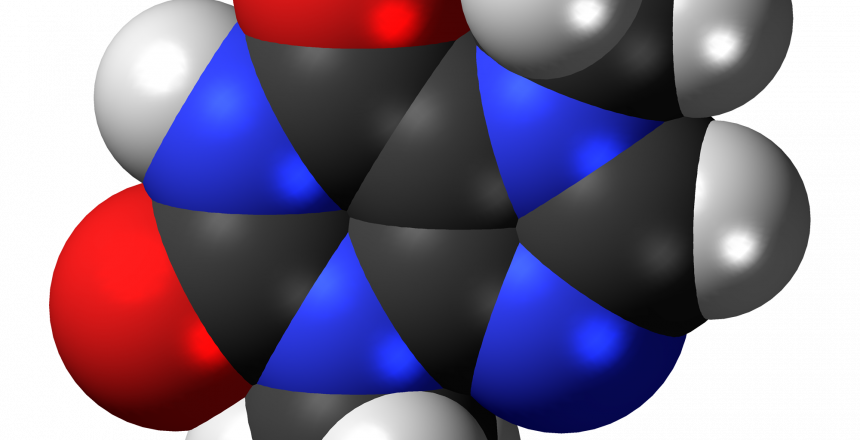Theobromine is a naturally occurring compound found in cacao beans, tea leaves, and other plant sources. It belongs to the same chemical family as caffeine but has a milder stimulating effect. Theobromine nootropics have gained attention for their potential cognitive-enhancing properties and overall health benefits. In this comprehensive guide, we will explore the benefits of theobromine nootropics in detail. From its mechanism of action to the research supporting its use, we will provide an in-depth understanding of how theobromine can potentially optimize brain health and enhance cognitive performance.
Understanding Theobromine Nootropics
Theobromine acts as a stimulant by dilating blood vessels and increasing blood flow, resulting in improved oxygen and nutrient delivery to the brain. It also affects neurotransmitters involved in mood regulation, alertness, and cognitive function. Theobromine nootropics harness the power of this compound to potentially enhance cognitive performance, improve focus, promote mental clarity, and support overall brain health.
Mechanism of Action
Theobromine exerts its cognitive effects through several mechanisms. Here are some key aspects:
Vasodilation and Blood Flow Enhancement
Theobromine is known for its ability to dilate blood vessels, particularly in the brain. This vasodilation increases blood flow, allowing for improved oxygen and nutrient delivery to brain cells. By enhancing cerebral circulation, theobromine can potentially optimize cognitive function.
Neurotransmitter Modulation
Theobromine affects the levels and activity of neurotransmitters in the brain, including dopamine and serotonin. These neurotransmitters play a vital role in mood regulation, focus, attention, and cognitive processes. By influencing neurotransmitter activity, theobromine may enhance cognitive function and promote mental well-being.
Benefits of Theobromine Nootropics
Theobromine has been associated with several cognitive and overall health benefits. The following are some potential advantages of incorporating theobromine into your cognitive enhancement routine:
Cognitive Enhancement and Mental Performance
Theobromine nootropics may enhance cognitive function, including memory, focus, attention, and information processing. By improving blood flow to the brain, supporting neurotransmitter activity, and promoting mental clarity, theobromine can potentially optimize cognitive performance.
Mood Elevation and Stress Reduction
Theobromine has been linked to mood elevation and stress reduction. It may promote the release of endorphins, the “feel-good” hormones, and enhance serotonin levels, which are associated with mood regulation. By reducing stress and promoting a positive mood, theobromine can contribute to overall cognitive well-being.
Physical and Mental Energy Boost
Theobromine acts as a mild stimulant, providing a gentle energy boost without the jitters or crash associated with caffeine. It may increase alertness, mental stamina, and physical endurance, making it useful for tasks requiring sustained attention and focus.
Antioxidant and Anti-Inflammatory Effects
Theobromine possesses antioxidant and anti-inflammatory properties, which can help protect brain cells from oxidative stress and inflammation. By reducing neuronal damage and supporting brain health, theobromine may contribute to long-term cognitive well-being.
Research and Scientific Evidence
Research on theobromine nootropics has provided valuable insights into their cognitive benefits. Here are some key findings:
Cognitive Function and Mental Performance
Studies have shown that theobromine supplementation may improve cognitive function and mental performance. Research conducted on both animals and humans has demonstrated positive effects on memory tasks, attention, and cognitive processing.
Mood Regulation and Stress Reduction
Theobromine has been studied for its potential mood-elevating and stress-reducing effects. Research suggests that theobromine may enhance mood, reduce symptoms of stress, and promote relaxation. It may also have anxiolytic properties, helping to reduce anxiety.
Physical Performance and Endurance
Theobromine’s stimulant properties have been associated with improved physical performance and endurance. It may enhance oxygen utilization, reduce perceived exertion, and delay fatigue during physical activities.
Safety and Considerations
Theobromine is generally considered safe for most individuals when consumed in moderation. However, it is important to consider the following:
Sensitivity and Individual Variations
Individual responses to theobromine may vary. Some individuals may be more sensitive to its stimulant effects or may experience side effects such as increased heart rate or restlessness. Start with a lower dosage and monitor your body’s response.
Dietary Considerations
Theobromine is naturally present in cocoa and chocolate products. While moderate consumption is generally well-tolerated, it is important to be mindful of overall dietary intake, especially if you have any pre-existing health conditions or sensitivities.
Interactions and Precautions
If you have underlying medical conditions, are taking medications, or are pregnant or breastfeeding, it is essential to consult with a healthcare professional before using theobromine supplements. Theobromine may interact with certain medications or have effects on blood pressure and heart rate.
Theobromine: A Natural Compound in Cacao
Theobromine is a naturally occurring compound found in cacao beans, the primary ingredient in chocolate. It is responsible for the distinctive bitter taste of dark chocolate. Cacao has been consumed for centuries for its pleasurable and stimulating effects. However, it is important to note that theobromine levels vary depending on the processing and type of chocolate. Dark chocolate generally contains higher levels of theobromine compared to milk chocolate. Theobromine is also found in tea leaves, making it a component of certain types of tea.
Differentiating Theobromine from Caffeine
Theobromine and caffeine are both stimulants that belong to the same chemical family, methylxanthines. While they share some similarities in their effects, there are distinct differences between the two. Theobromine has a milder stimulating effect compared to caffeine, making it a suitable choice for individuals who are sensitive to caffeine or prefer a less intense stimulant. Unlike caffeine, theobromine does not typically cause jitters or disrupt sleep patterns, making it a favorable choice for those seeking a cognitive boost without the associated side effects of caffeine.
Metabolism and Elimination of Theobromine
Once consumed, theobromine is rapidly absorbed by the body and metabolized in the liver. Its half-life, the time it takes for the body to eliminate half of the ingested theobromine, is significantly longer compared to caffeine. This means that theobromine remains active in the body for a longer duration, providing sustained effects. Theobromine is primarily excreted through the kidneys.
Additional Health Benefits of Theobromine
In addition to its potential cognitive benefits, theobromine has been associated with other health advantages:
Cardiovascular Health
Theobromine has been shown to have vasodilatory properties, leading to improved blood flow and potentially contributing to cardiovascular health. It may help relax blood vessels and lower blood pressure, thereby supporting heart health.
Antioxidant Effects
Theobromine exhibits antioxidant properties, which help protect cells from damage caused by harmful free radicals. Antioxidants play a vital role in maintaining overall health and reducing the risk of chronic diseases.
Diuretic and Urinary Health
Theobromine has diuretic effects, promoting increased urine production and potentially supporting urinary health. It may assist in flushing out toxins and preventing urinary tract infections.
Respiratory Health
Studies suggest that theobromine may help relax the smooth muscles in the bronchial tubes, potentially providing relief for individuals with respiratory conditions such as asthma.
Conclusion
Theobromine nootropics offer potential cognitive and overall health benefits, including cognitive enhancement, mood elevation, stress reduction, and physical performance improvement. While further research is needed to fully understand the cognitive effects of theobromine, preliminary studies and scientific evidence suggest promising results. As with any supplement, it is important to use theobromine responsibly, following recommended dosages and considering individual circumstances. Consult with a healthcare professional to determine if theobromine is suitable for you and to ensure proper usage and safety. With this comprehensive guide, you have gained a deeper understanding of the potential benefits of theobromine nootropics and can make informed decisions regarding their incorporation into your cognitive enhancement journey.
- Fizzy Fun: Exploring Melo THC Beverages! - April 22, 2024
- Exploring Jaw Slimming Techniques: Insights from Dr. Laura Geige - April 1, 2024
- Lip Fillers, Botox, Dermal Fillers, Anti-Wrinkle Injections in Arkley EN5 - March 22, 2024




